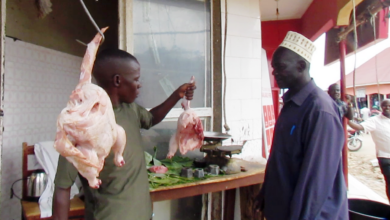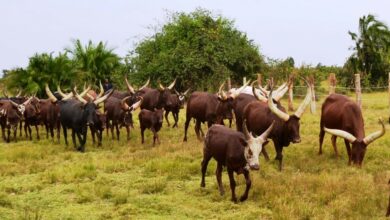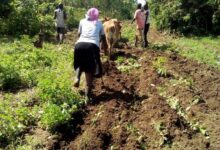Masaka wetlands degraded due to inadequate funding- top official
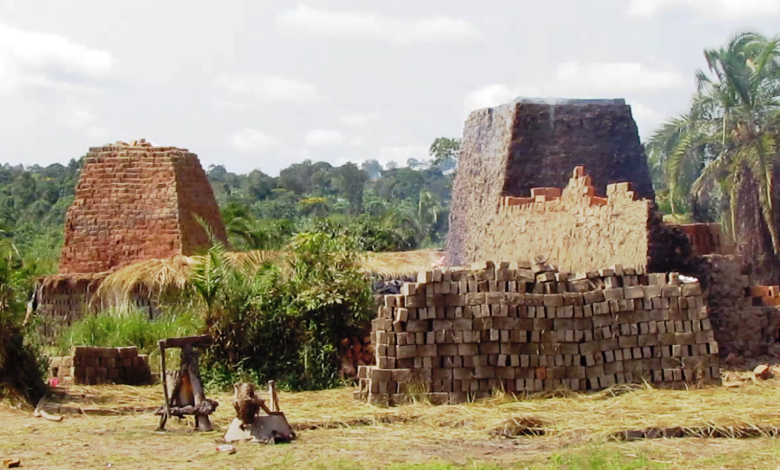
MASAKA– More than 42 square kilometres of the wetlands’ buffer zones in Masaka district have been degraded due to a lack of enough funds for monitoring and enforcement of regulations, a senior official in the district has said.
According to Masaka District Senior Environment Officer, Bruno Kiyimba, the district is endowed with 320 square kilometres of wetlands that stretch from Nakayiba wetlands in Masaka City to Lake Nabugabo in the east and Nabajjuzi wetland up to Kyogya wetland bordering Bukomansimbi district have been encroached on by humans for settlement purposes.
Kiyimba said some people have gone ahead to obtain land titles, and established houses, washing bays, waste disposal sites, and bricklaying, among other activities.
Kiyimba said for the last 15 years, the district natural resources department has been receiving a grant of Shs 16 million annually for monitoring and enforcement of environmental regulations but the funds, he said, are not enough to curb the continuous encroachment on the wetlands in the district.
He said the funds allocated are shared with district forest department and the natural resources staff of the newly created Masaka city, worsened by the fact that the department has no vehicle to help in the monitoring of the wetlands.
He said the increasing population in the rural sub-counties of Kyanamukaka, Buwunga, and Bukakata as well as Masaka city has resulted in the establishment of other activities like unregulated fish ponds and construction factories in the wetlands.
”With the little funds, the department has tried to safeguard at least 278sq km of the wetland’s buffer zones,” he said, appealing to the government to increase the funds for law enforcement and monitoring of wetlands in the area.
Gazetted wetlands in Masaka City include; Nabajjuzi, Nakayiba, Ndyabusole, Kitenga, and Kassooka. While others in the rural district are, Kibogera, Mazigo, Mikomago, Buwunde, Kyantale, Gunakwamuka, and Nalubabwe in the sub-counties of Kyanamukaka and Buwunga respectively.
The wetlands in the rural area are also being used for clay, sand mining, and agricultural activities.
“These [wetalnds] are breeding sanctuaries for birds and have the ecological ability to filter water but uncontrolled human activities there are very rampant,” he noted, saying many people are claiming titles in the wetlands and there are so many controversies with court cases between government and private developers.”
Masaka City Environment Officer, Pauline Nabadda attributed the rampant degradation of wetlands to the increasing population. She said the city has a population of 211, 591 people, 53,771 households, of which 5,695 have constructed their houses in the buffer zones of Ndyabusole, Kitenga, Nakayiba, and Nabajjuzi wetlands, especially in the areas of Kijjabwemi, Kimanya, Gayaza, and Kyabakuza villages.
Nabajjuzi, with 1753 hectares, is globally designated under the Ramsar Convention as a potential ecotourism destination for rare animal species like Shoebill, Sitatunga swamp antelope, papyrus yellow warbler, and crested crane but all are endangered and threatening the potential tourism sector in Masaka district.
The wetland is a source of water supply for domestic use in Masaka city where the National Water and Sewerage Corporation [NWSC] treatment plant is established but the rate of destruction is very high.
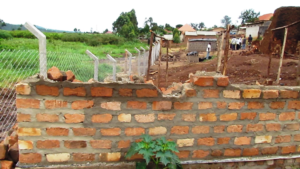
She also revealed that a private tannery factory [skin and hides] was constructed in the buffer zone of Nabajjuzi wetland and it has continued to discharge industrial residues into the wetland and a stretch of two kilometres of papyrus adjacent to the factory has been destroyed or dried due to chemicals. Pollution of chemicals into the wetland has affected nearby dwellers with bad smells released.
Masaka district LCV chairperson, Andrew Batemyeto said before Masaka city was carved out of Masaka district, all activities in the water catchment areas in the wetlands had been stopped.
He said his office in partnership with the district land board and planning authority has laid strategic plans to ensure that all the titles in the catchment area are cancelled if they are to save the remaining wetlands.
In an interview, the National Environmental Management Authority [NEMA] Executive Director, Dr. Akankwasa Barirega, said investigations on the degradation of the wetlands in Masaka district continue and the restoration of the degraded wetlands is going on. He revealed that more than 2,592.3 square kilometers of wetlands in Uganda are still intact.
According to environmental scientists, wetlands protect our shores from wave action, reduce the impacts of floods, absorb pollutants and improve water quality. They also provide a natural habitat for animals and plants and many contain a wide diversity of life, supporting plants and animals that are found nowhere else.
Buy your copy of theCooperator magazine from one of our countrywide vending points or an e-copy on emag.thecooperator.news


